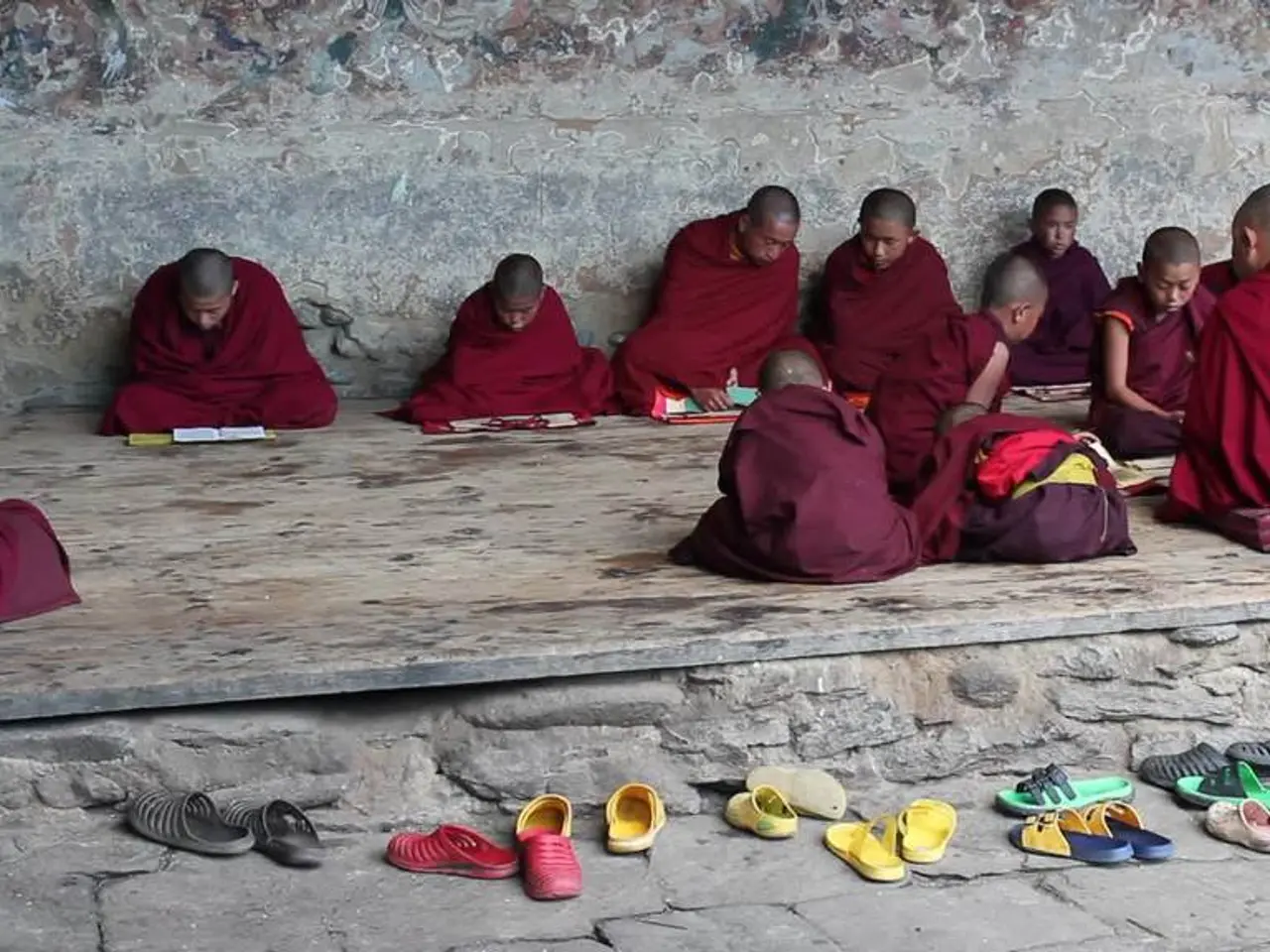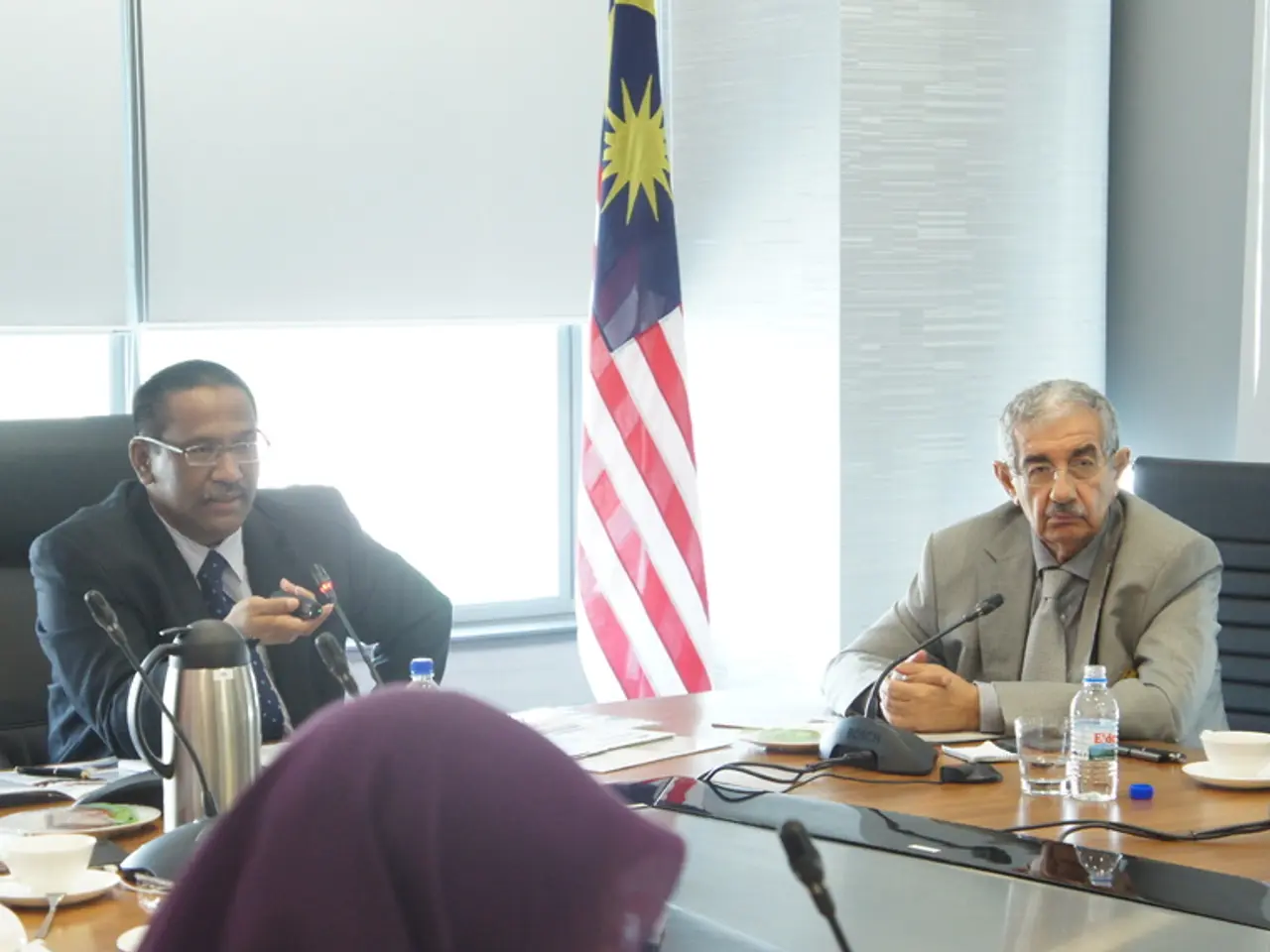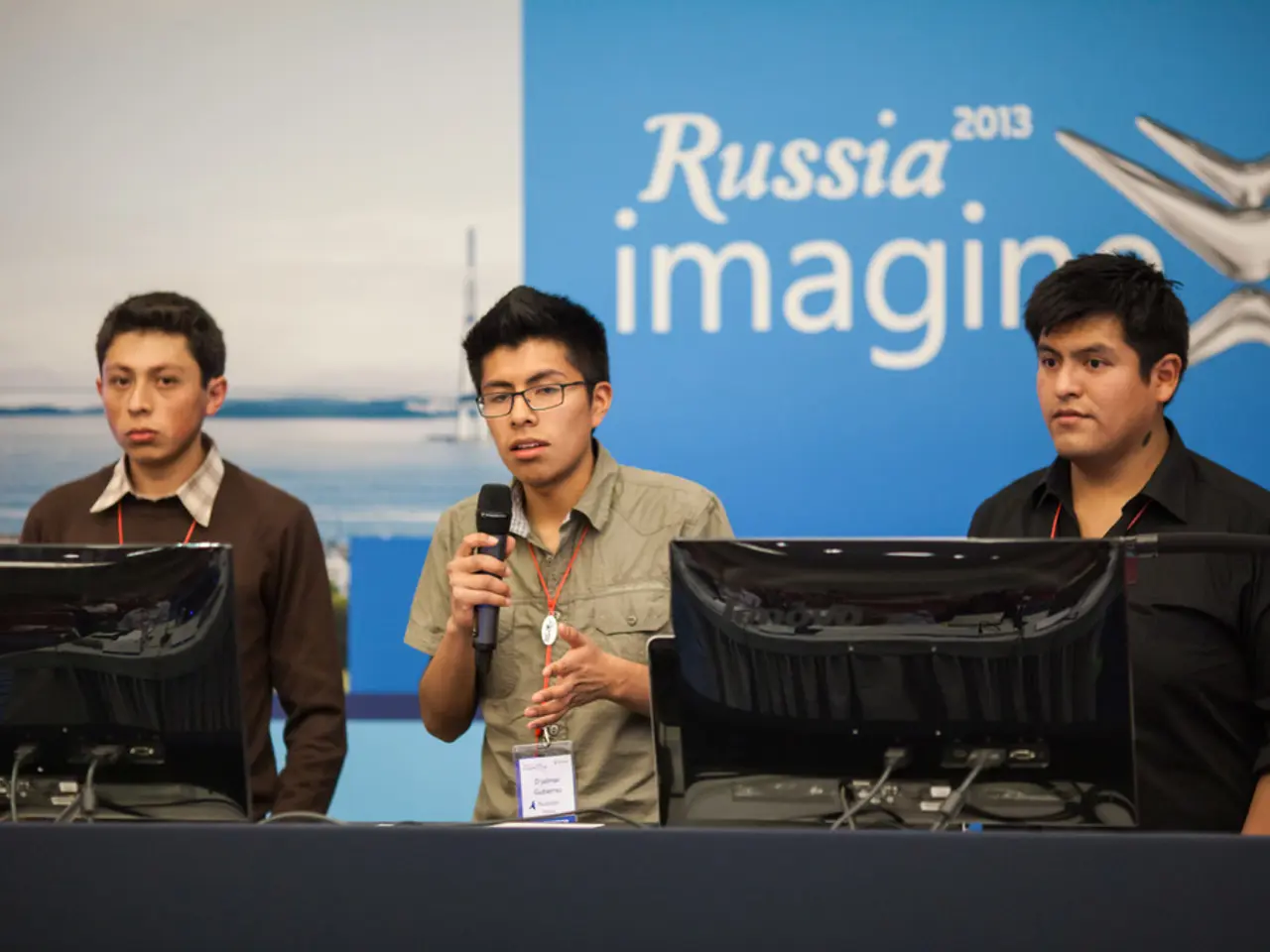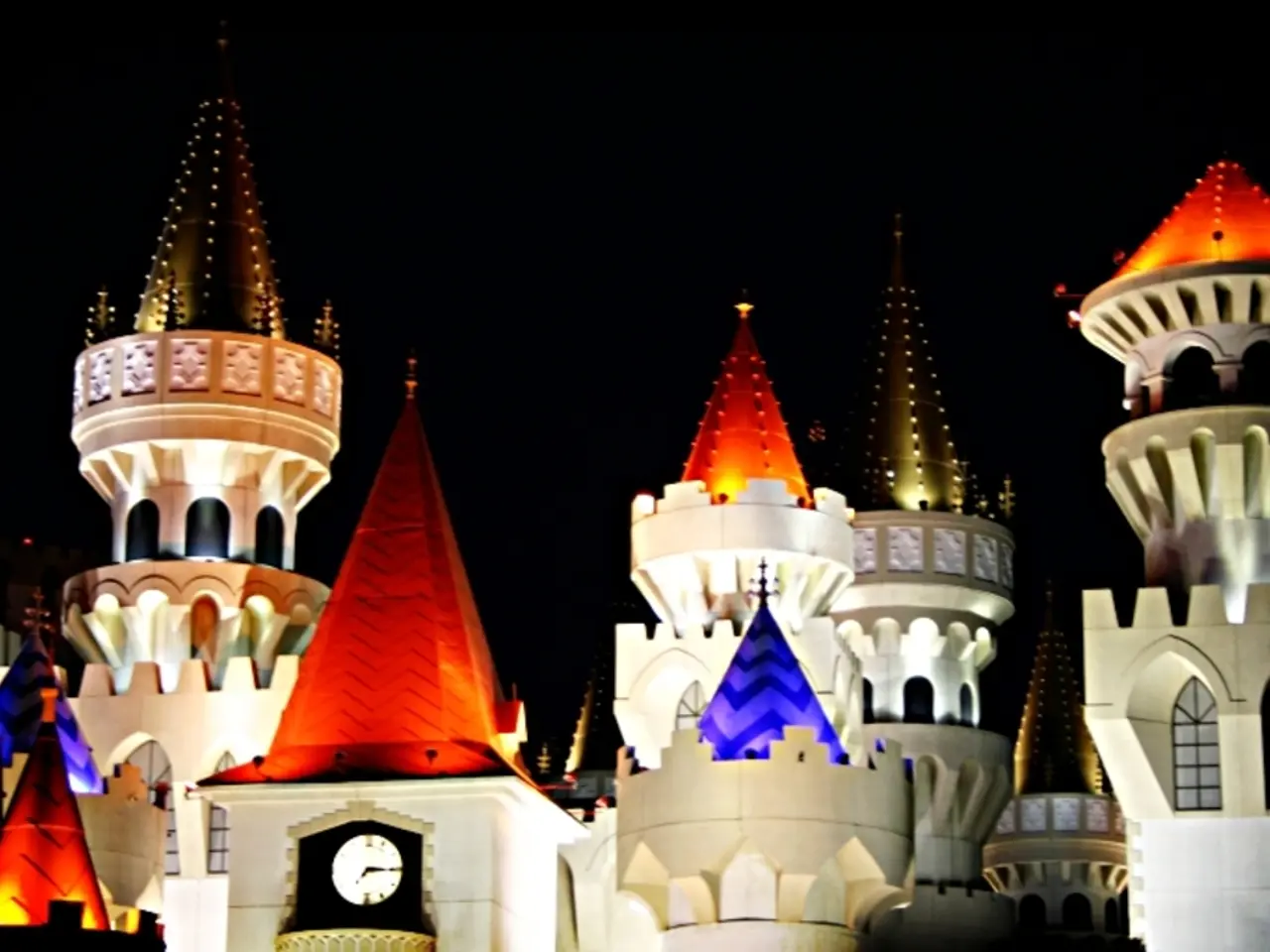"Indian Foreign Ministry Responds to Dalai Lama's Succession Plan: Indian Government Opposes Chinese Interference"
The Dalai Lama, the 14th and current Dalai Lama, Tenzin Gyatso, has declared that the Gaden Phodrang Trust, a non-profit institution he established, will oversee the process of identifying his successor. The Trust, which was set up in 2015 to manage matters related to the Dalai Lama's institution, will carry out the search and recognition procedures in accordance with traditional Tibetan Buddhist practices.
In a statement ahead of his 90th birthday, the Dalai Lama emphasized that the Trust, in consultation with heads of Tibetan Buddhist traditions and oath-bound Dharma Protectors linked to the Dalai Lama lineage, has sole authority to carry out the process. He explicitly rejected any Chinese government involvement, underscoring that the successor must be chosen by Tibetans and Buddhists without external interference.
This announcement has been met with swift rejection from China. The Chinese government insists that the selection of the Dalai Lama's reincarnation must follow Chinese law and tradition, specifically referencing the use of the "golden urn" lottery system and requiring central government approval. Beijing has stated that any attempt by the Dalai Lama or the Gaden Phodrang Trust to independently select a successor would be illegitimate and in violation of established norms and legal procedures.
China's Ambassador to India, Xu Feihong, reiterated China's official stance on the reincarnation process of Tibetan Buddhist leaders. He emphasized that the reincarnation of Living Buddhas is governed by time-honoured rituals and cannot be determined by any one individual.
The disagreement between the Dalai Lama and China highlights a deepening geopolitical and religious conflict over the future of Tibetan Buddhist traditions. The Dalai Lama's approach is seen by many as a safeguard for religious freedom and Tibetan identity, while Beijing views it as a challenge to its sovereignty and control over Tibet.
India's Ministry of External Affairs stated that it does not comment on religious matters but supports freedom of religion for all. Union Minister Kiren Rijiju believes the Dalai Lama should choose his own successor.
The Dalai Lama has unified Tibetans at home and in exile and elevated their plight onto the global stage. His reincarnation process will be guided by centuries-old religious traditions. No specific reaction from the Dalai Lama or his representatives regarding China's stance on the reincarnation process was mentioned in the article.
- The disagreement between the Dalai Lama and China over the reincarnation process of Tibetan Buddhist leaders highlights the complexity of war-and-conflicts and politics involved in the issue.
- The Dalai Lama's stance on the Gaden Phodrang Trust overseeing the process of identifying his successor reflects his policy-and-legislation and general-news approach to the issue, emphasizing religious freedom and autonomy, while China insists on adhering to traditional Tibetan Buddhist practices within the scope of Chinese law.







![[News Brief] Individual Spotted at Taylor Swift Performance in Weekly Event](/en/content/images/size/w1280/format/webp/20250705085754_taylor-swift-concert-shadowy.jpeg)
